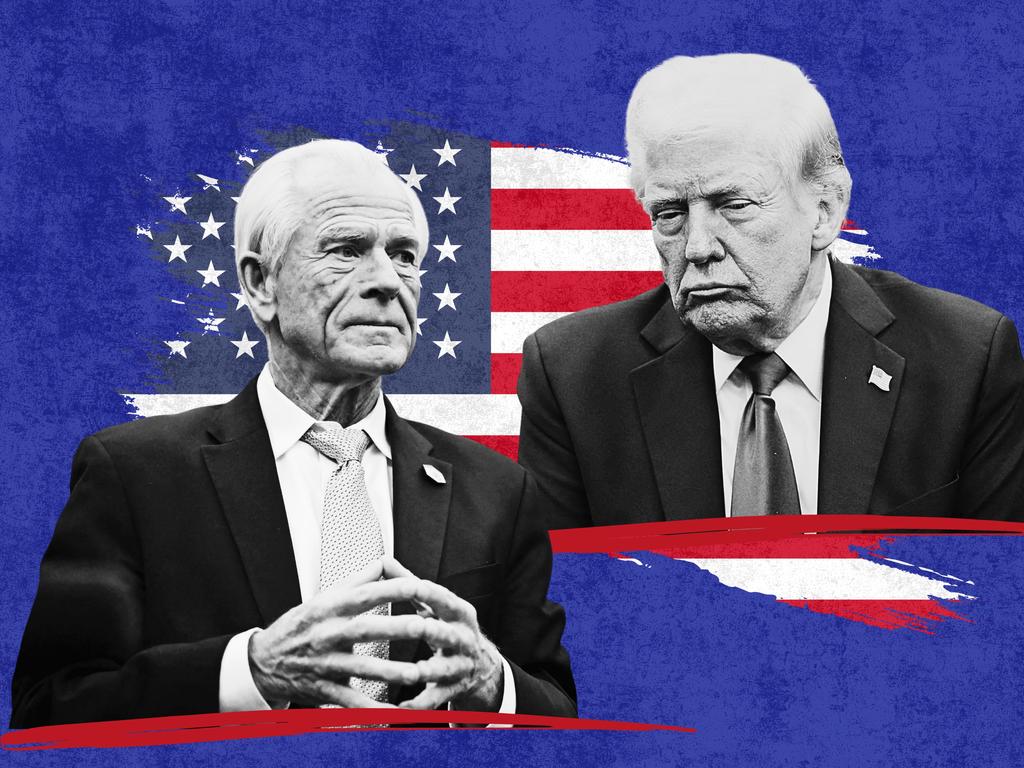As the adverse consequences of Donald Trump’s crash-through style bite, buyer’s remorse sets in among his MAGA base
Will the US President be consumed by the conflagration he has ignited or will an enduring system rise from the ashes?
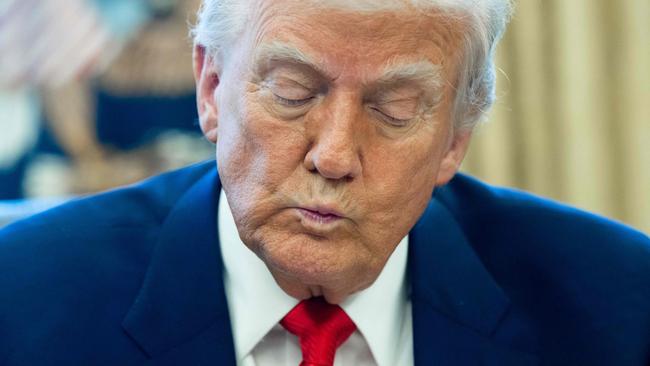
Despite a relief surge in global markets on Thursday AEST triggered by Donald Trump’s unexpected 90-day tariff pause on “those who don’t retaliate”, the US President’s Liberation Day tariffs presage the most sweeping structural and normative change in the international trading system since 1945.
This was underscored by the imposition of a staggering 145 per cent tariff on imports from China, our major trading partner, sending US-China ties into a deep freeze and bringing a halt to most bilateral trade. Absent stimulus measures, this could cut China’s growth in half and have severe knock-on effects for the Australian and world economies.
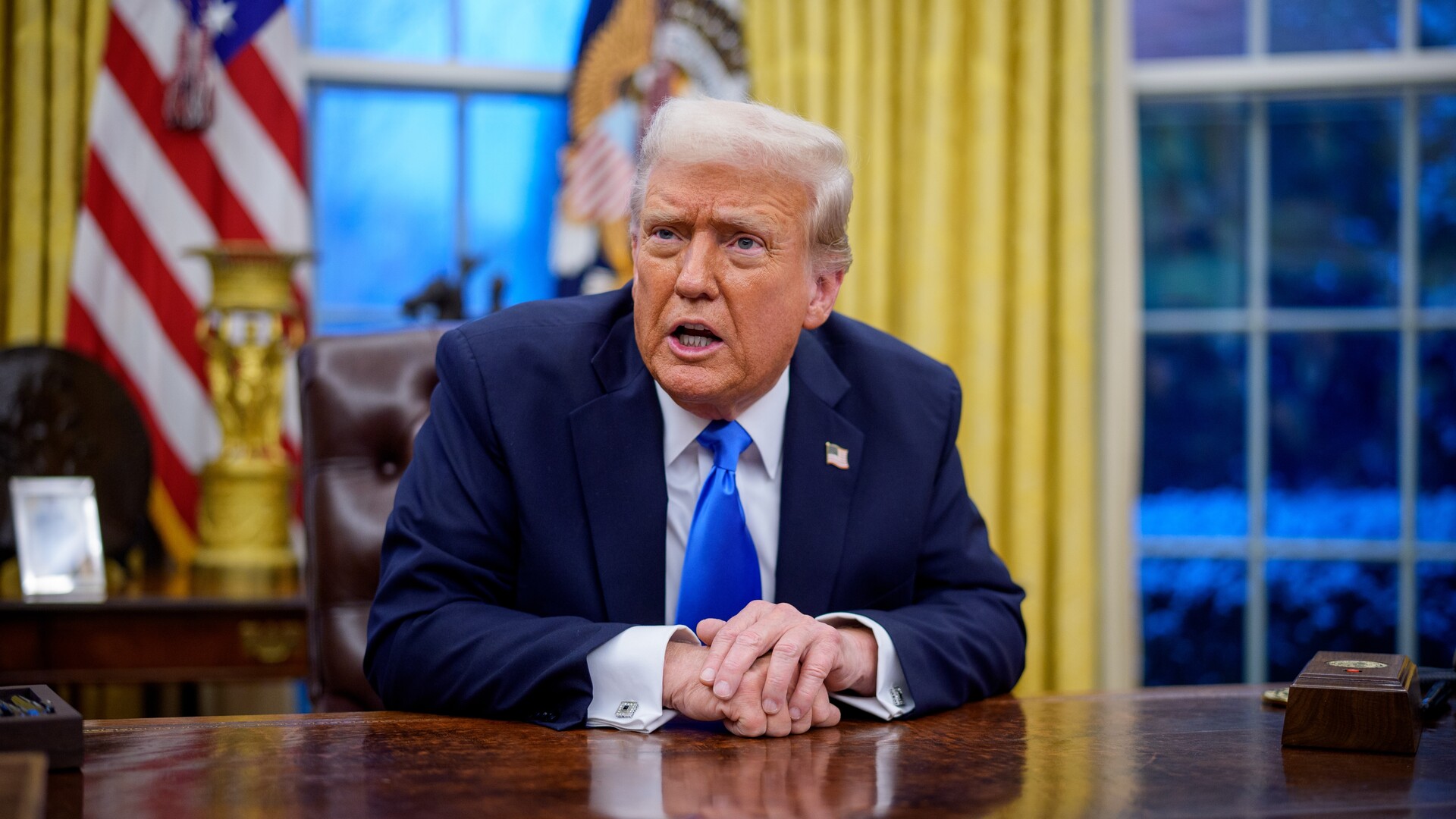
While Trump plays psychological mind games, with his on-again, off-again tactics raising false hopes of a return to normality, British Prime Minister Keir Starmer has declared that “globalisation is over” as the world teeters on the brink of a destructive trade war. Far from backing off, Trump is digging in, promising Americans that short-term pain will bring long-term gain.
But China shows no sign of folding, countering with reciprocal tariffs and vowing to “fight to the end”.
As the Trump revolution gathers steam, determining its fate requires answers to two critical questions beyond the Donald’s tariff strikes. Can this century’s most consequential leader make his country great again despite the doubts of detractors? Or will America emerge from the chaos and upheaval of the Trump era a diminished, lonely power bereft of friends and allies?
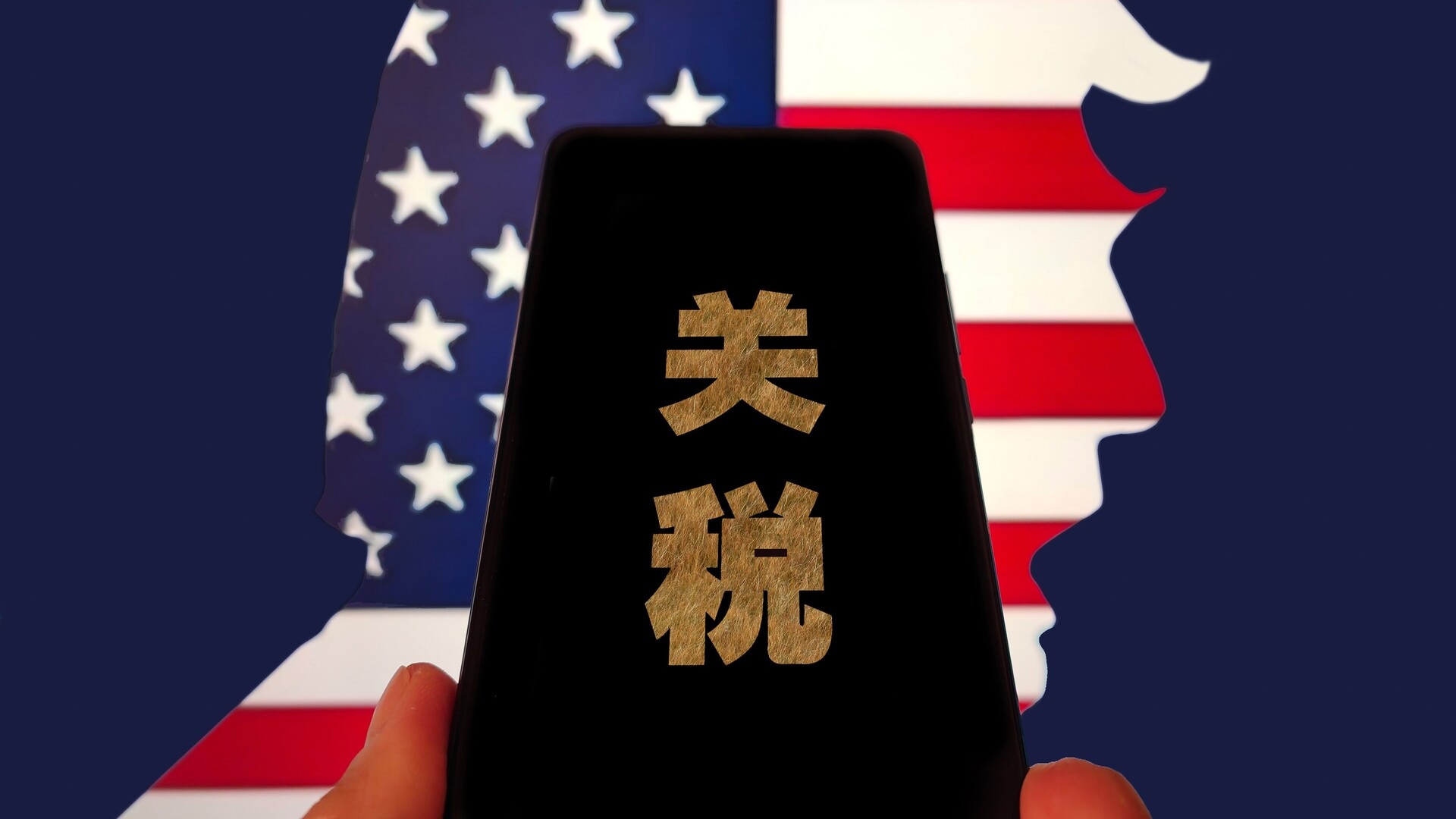
Some revolutionaries prosper. Many are consumed by the conflagration they ignite. A prominent figure in the French Revolution and the Reign of Terror, Maximilian Robespierre fell victim to the excesses of the revolution he led, guillotined on the aptly named “national razor” – a symbol of his penchant for retribution in the name of liberty and rough justice.
Will Trump’s fate be that of Robespierre – metaphorically speaking – or will his legacy endure long after his departure like Martin Luther, the seminal figure of the Reformation?
Luther’s challenge to the Catholic orthodoxy of Europe sundered the church, established Protestantism as a competing religion, reshaped the continent and unleashed political, social and cultural forces that led to bloody sectarian conflict and two wars.
Luther’s influence endured for centuries because he “touched off something much larger than himself”, distinguished American critic and author Joan Acocella wrote in The New Yorker. But his great failing was an inability “to create an institutional structure to replace the one he walked away from”.
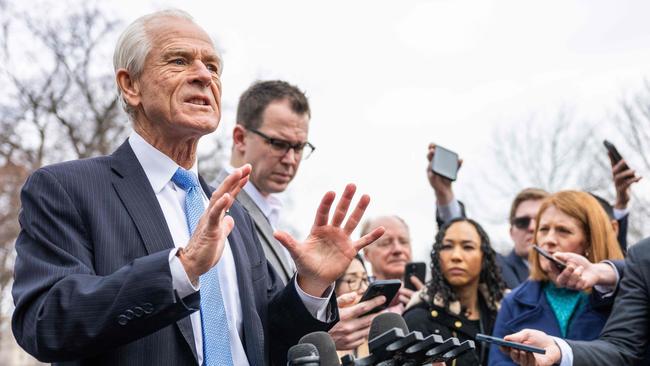
This is Trump’s Achilles heel. The singular insight, this paper’s Paul Kelly writes, is that Trump’s “colossal ego” prevents him from being a builder. “He lacks the institutional and policy capacity to strengthen America’s economic base” or to create a viable alternative order to the one he wants to tear down. Kelly’s judgment seems right as the scale, scope and implications of Trump’s tariff agenda are revealed.
Unbridled, Trump seems determined to engineer a return to the world of the 1890s when tariffs were central to US trade policy under Trump’s pin-up president, William McKinley. He fails to grasp that McKinley’s harsh tariff policy penalised his own supporters, up-ending the market for American farmers, driving up the cost of farm equipment and lowering prices on American agricultural goods.
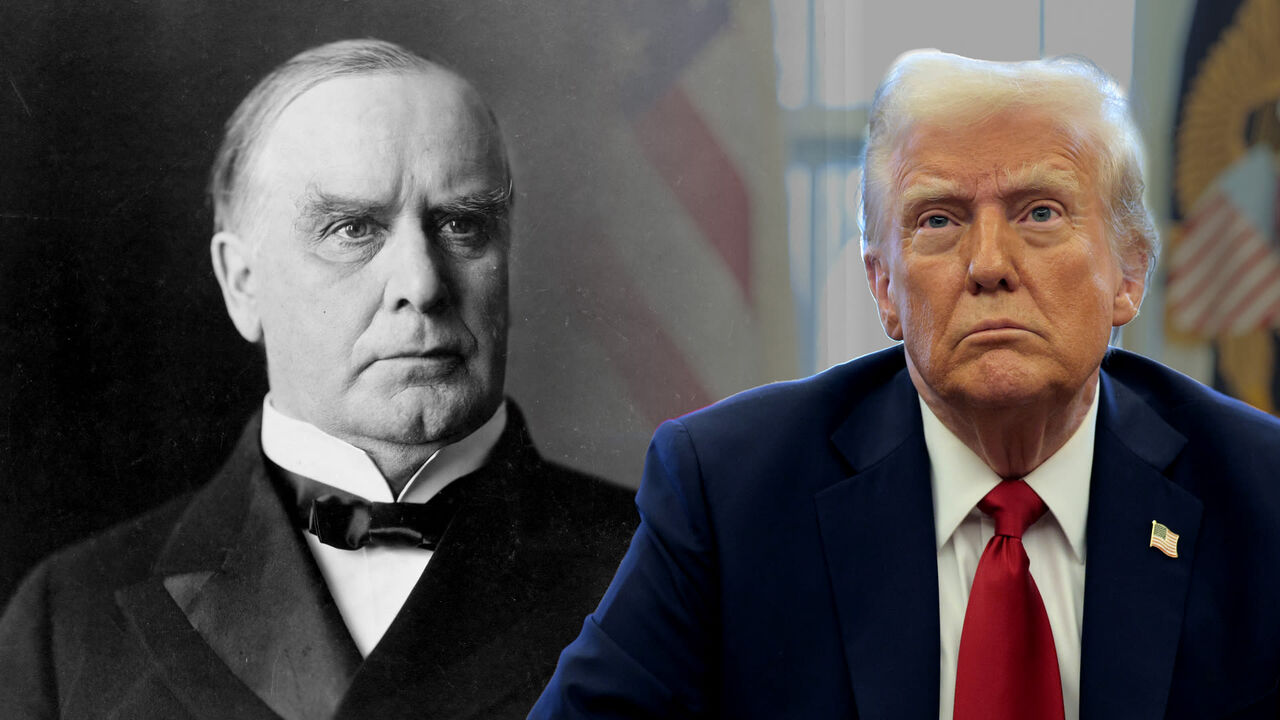
Farmers are also a key Trump constituency. The warning lights in the White House should be flashing red with the release of an AgWeb poll in March showing 54 per cent of farmers were opposed to tariffs before Liberation Day, a number that only will increase as the hit on their wallets from China’s and Europe’s counter-tariffs takes its toll.
Trump declares he wants to “reset the trade table”, dismissing the complacent, erroneous belief that tariffs are merely a negotiating tactic. He calculates the US has the most staying power because it’s the world’s largest economy. Other countries won’t risk serious and sustained retaliation for fear of attracting additional tariffs or being closed out of the US market entirely.
Defending the tariffs, Trump claims more than 75 countries are seeking exemptions or lower tariff rates. Revealing his mindset, Trump boasted to fellow Republicans at a dinner on Tuesday in Washington that countries “are calling us up kissing my arse” desperate to cut a deal on his tariffs.
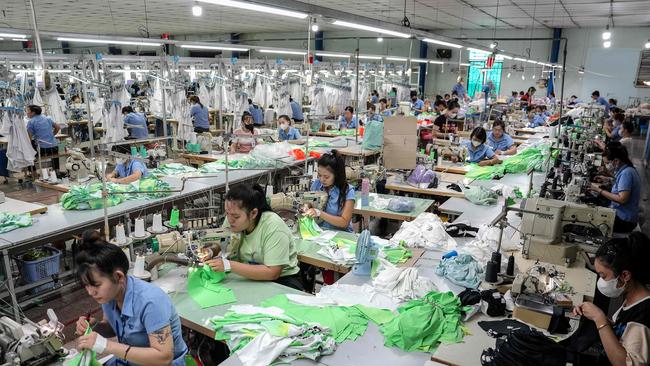
But any short-term gains are likely to be eroded or reversed by higher prices, countervailing tariffs and trade diversification away from the US. Global financial services firm JPMorgan now is pricing in a 60 per cent likelihood of a US recession, although Trump could avoid this outcome by taking the deals on offer, changing course and claiming victory, as he has done so often.
Trump made two rookie errors he may come to regret. His first mistake was to levy an arbitrarily determined universal tariff falsely described as reciprocal. There is nothing remotely reciprocal about imposing a 10 per cent tariff on Australia when most imports from the US are tariff-free, all but guaranteeing a much broader pushback against Trump’s tariffs than the first trade war he initiated in 2018.
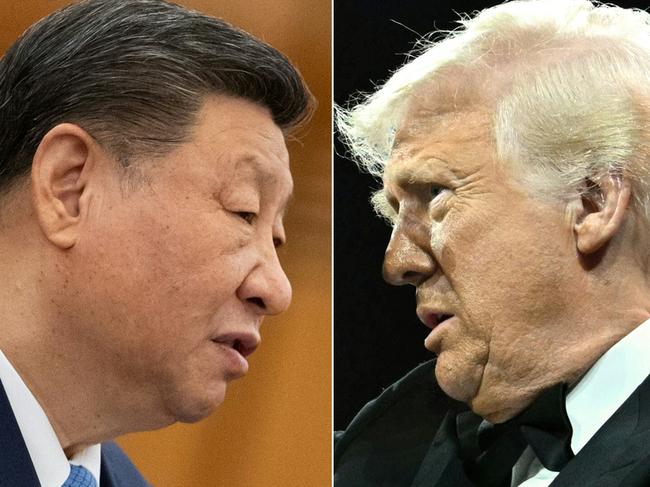
A second misjudgment was not making China the centrepiece of his tariff strategy from the start, allowing Beijing to paint the US as a trade bully and a threat to the global economy.
“Instead of making it the whole industrial world against China, Trump made it America against the whole industrial world and China,” The New York Times columnist Thomas Friedman writes.
Xi Jinping now is portraying himself as the protector of the international trading system opposed to the atavism of a rules-breaking American President, a significant propaganda coup for the Chinese leader.
Beijing lost no time in offering to work with Europe to force the White House into a U-turn. Vice-Minister of Commerce Ling Ji told his Hungarian counterpart that his country wanted to work with the EU to “uphold a rules-based trading system”.
Xi wants China and India to co-operate in a dragon-elephant tango. And Chinese representatives at a recent economic dialogue with US allies Japan and South Korea took delight in claiming the three countries had agreed to respond jointly to US tariffs, although Tokyo said there was no such discussion.
This is a complete reversal of the situation under president Joe Biden, who successfully united friends and allies behind a strategy of exposing China’s economic coercion and unfair trade practices.
Don’t forget that China was the subject of nearly half of all trade complaints in the World Trade Organisation in 2024 and systematically has manipulated trade for economic and geopolitical advantage since its entry into the WTO in December 2001.
A key test of Trump’s revolution will be his ability to command loyalty and support from allies whose faith in US leadership and the alliance is being severely tested by his indiscriminate tariffs and transactional approach to relationships. Treating friends as adversaries inevitably destroys trust across time.
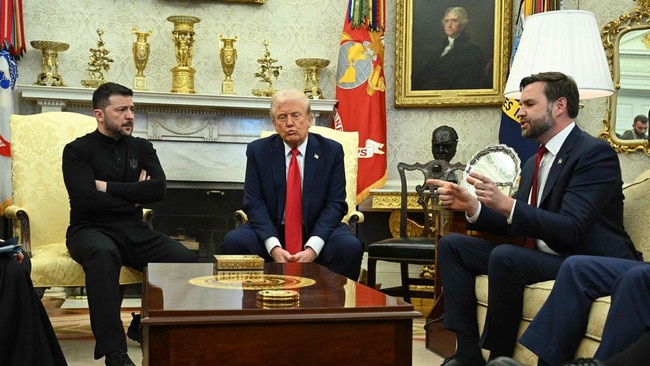
The administration’s visceral criticism of Europe has stunned European allies and doesn’t augur well for trans-Atlantic ties. It reveals an entrenched hostility that goes well beyond Europe’s defence failings.
For Trump and his inner circle, David Luhnow and Marcus Walker write in The Wall Street Journal, the EU “is the beating heart of the globalist elite they blame for rigging the rules of world trade to hurt American workers and espousing multiculturalism and wokeness”.
MAGA leaders believe Europe is in terminal decline, having committed “civilisational suicide” by allowing their Christian heritage, traditions, institutions and values to be subverted by hostile ideologies, ignoring the people’s will.
The damage to relations with Europe already may be beyond repair. But in our region the jury is still out on whether the strategic value of the alliance outweighs the adverse impact of Trump’s trade policies. Asian allies Japan and South Korea have been particularly hard hit by tariffs.
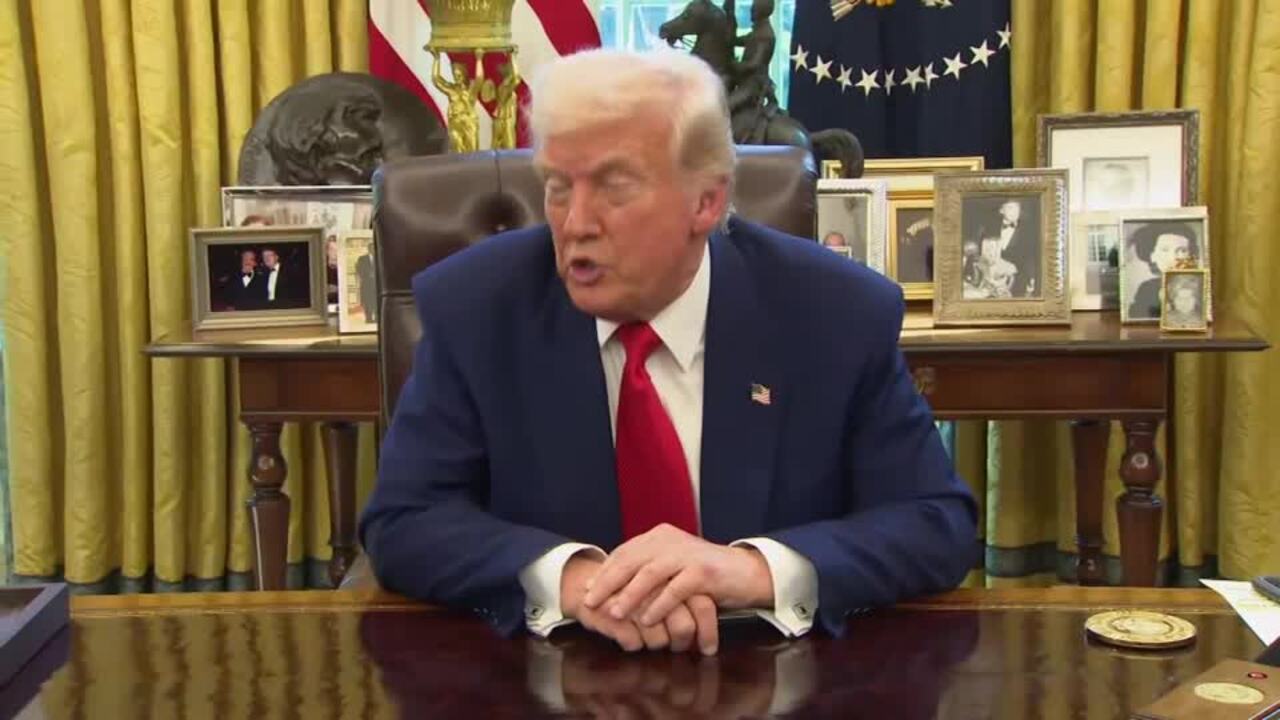
But, like Australia, they are hedging their bets hoping that Trump will negotiate downwards his tariff imposts in exchange for palatable deals that leave America’s protective nuclear umbrella in place and preserve the unmatched deterrence value of the alliance.
Trump doesn’t seem to understand that trade reinforces geopolitical alignments. During the Cold War, deep US economic and trade ties with NATO allies and other aligned democracies were decisive in defeating the economically sclerotic Soviet Union.
China is a different proposition. It’s an economic, manufacturing and technological powerhouse. Without strong allies, Trump doesn’t “have the cards” to best Xi in the high-stakes game to be this century’s dominant nation.
His tariffs and evisceration of the US aid program is a gift to China and a colossal own goal in the race to win over the developing world. Most African and South American states already are gravitating towards China. And the US is now “pretty much done in Southeast Asia”, former US deputy assistant secretary of state for South and Central Asia Evan Feigenbaum says.
The problem is that Trump’s mercurial nature makes it difficult to assess the long-term damage to the alliance. He always leaves open the possibility that decisions can be reversed or ameliorated with the right deal, encouraging the unedifying lobbying and special pleading witnessed before and after the Liberation Day tariffs came into force.
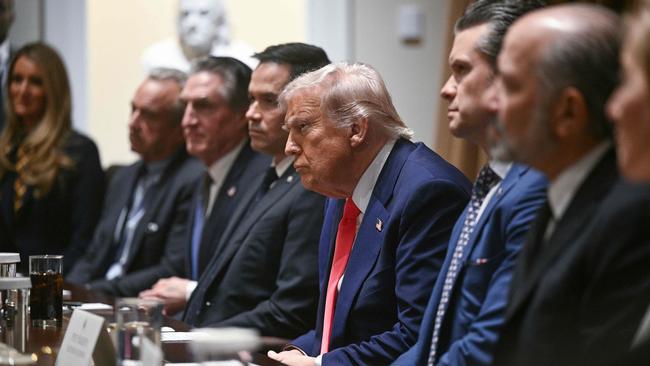
Although Trump repeatedly casts doubt on his commitment to allies, senior members of his cabinet send contradictory messages of support. Trump already has defenestrated NATO by telling Europeans to look after their own patch. The question for Australia is whether he will do the same in the Indo-Pacific, having raised doubts about the feasibility or point of defending Taiwan.
Yet in a memo to his department, Defence Secretary Pete Hegseth insists: “China is the department’s sole pacing threat and denial of a Chinese fait accompli seizure of Taiwan.”
While hoping for the best, shocked allies are planning for the worst by hedging against the once inconceivable idea that Washington could step away from its membership of an alliance that it founded and led for eight decades, removing the biggest advantage the US has over China and forcing allies to decrease their security reliance on the US.
Operationally, this would mean reduced technology-sharing with the US, buying less American defence equipment and the possible denial of bases and access for training, intelligence gathering and force projection. Confronted by a hostile China and a disengaged America, Japan and South Korea may feel they have no choice but to acquire their own nuclear weapons. France and Britain already are considering making their nukes available for European defence.
Ultimately, the success of Trump’s revolution will be judged on his capacity to bring the American people with him. This isn’t going well.
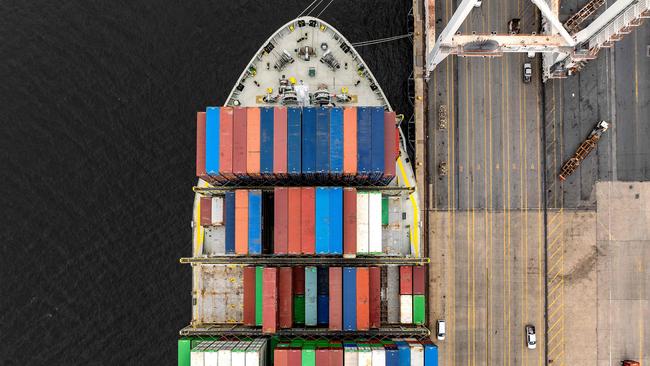
Trump started his second term with the wind in his sails having won the popular vote, carrying all seven swing states and uniting an impressive multiracial, multiethnic coalition of aggrieved groups under his banner who clearly wanted change.
His promise to end illegal migration, rejuvenate American industry, make the US an energy superpower and push back against the more extreme elements of the progressive woke agenda was a clear vote winner, resonating even with political opponents.
But as the adverse consequences of his crash-through style are exposed, buyer’s remorse is setting in among his MAGA base.
Texas senator Ted Cruz – who ran for re-election calling himself Trump’s “strongest supporter” in the Senate – warned of a “political bloodbath” if Trump’s tariffs triggered a recession. Rebutting Trump’s claim that trade wars were “good” and “easy to win”, conservative commentator Ben Shapiro said trade wars are “not good” or “easy to win” if “you don’t have a plan”.
Conversely, Democrats and civil society groups dispirited by Trump’s electoral victory have been re-energised by his take-no-prisoners approach to governance, rallying across 1200 locations in all 50 states last weekend in the first serious public opposition to Trump’s agenda.
More worrying for a leader who prides himself on his commercial acumen and financial savvy is the leaking of support from business cheerleaders and the financial sector as the stockmarket gyrates wildly and the administration’s dysfunctionality becomes more evident.
Tech titan Elon Musk’s Department of Government Efficiency has become a lightning rod for criticism as the DOGE whirlwind leaves a trail of destruction in its wake. The administrative state is being rebuilt, top down and from the ground up.
A dizzying array of departments and agencies has been reconfigured with whole leadership teams fired and replaced by loyalists. This is eerily reminiscent of Mao Zedong’s Cultural Revolution in the late 1960s. The difference is that China was, and remains, a dictatorship while the US is still a democracy despite Trump’s desire for untrammelled power.
His supporters understand that a broken system requires major surgery. But Trump’s preference for a developer’s sledgehammer over a surgeon’s scalpel is disconcerting and politically counter-productive, exacerbated by his anarchic decision-making and mixed messages.
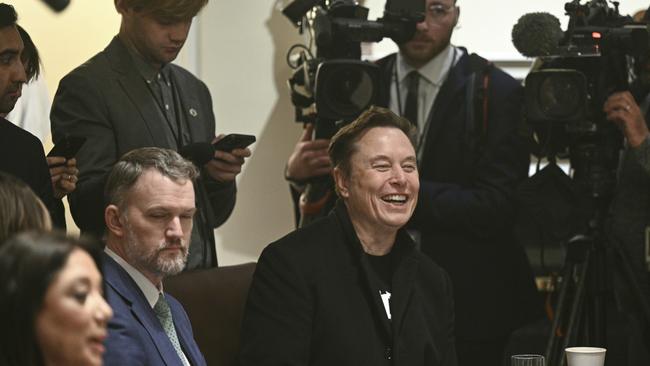
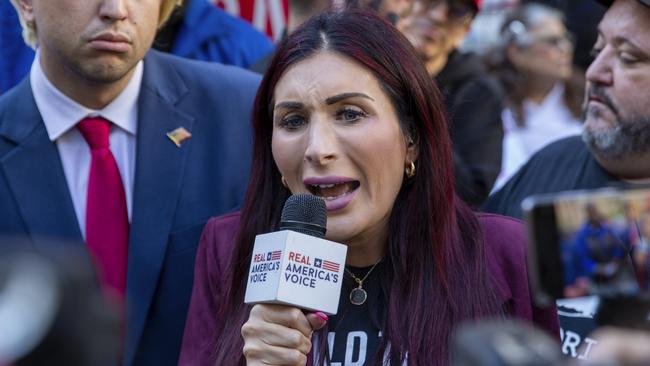
These also emanate from cabinet officials jockeying for the limelight, family members and activist supporters such as Musk and Laura Loomer, whom Trump allows to intervene on policy and personnel. Loomer appears to wield more influence over the staff of the National Security Council than under-fire National Security Adviser Mike Waltz, having six of his senior staff sacked by Trump last week after accusing them of disloyalty.
All this suggests that governing is going to get much tougher for Trump as the months roll on and domestic opposition builds. Trump loves a fight and his capacity to come back from the political dead continues to befuddle his critics. He may yet ride out the storm. But the odds are lengthening.
The next 12 months will determine the fate of his agenda and the MAGA brand. If Trump can dodge a recession, maintain the support of his domestic base, avoid international isolation and unleash the animal spirits of his country’s entrepreneurs then, as with Luther, his legacy will endure, changing the face of America forever. But on the evidence so far, Trump’s revolution is likelier to consume him, as the French Revolution did Robespierre, and drive a reformation that could really make America great again.
Alan Dupont is chief executive of geopolitical risk consultancy The Cognoscenti Group and a nonresident fellow at the Lowy Institute.



